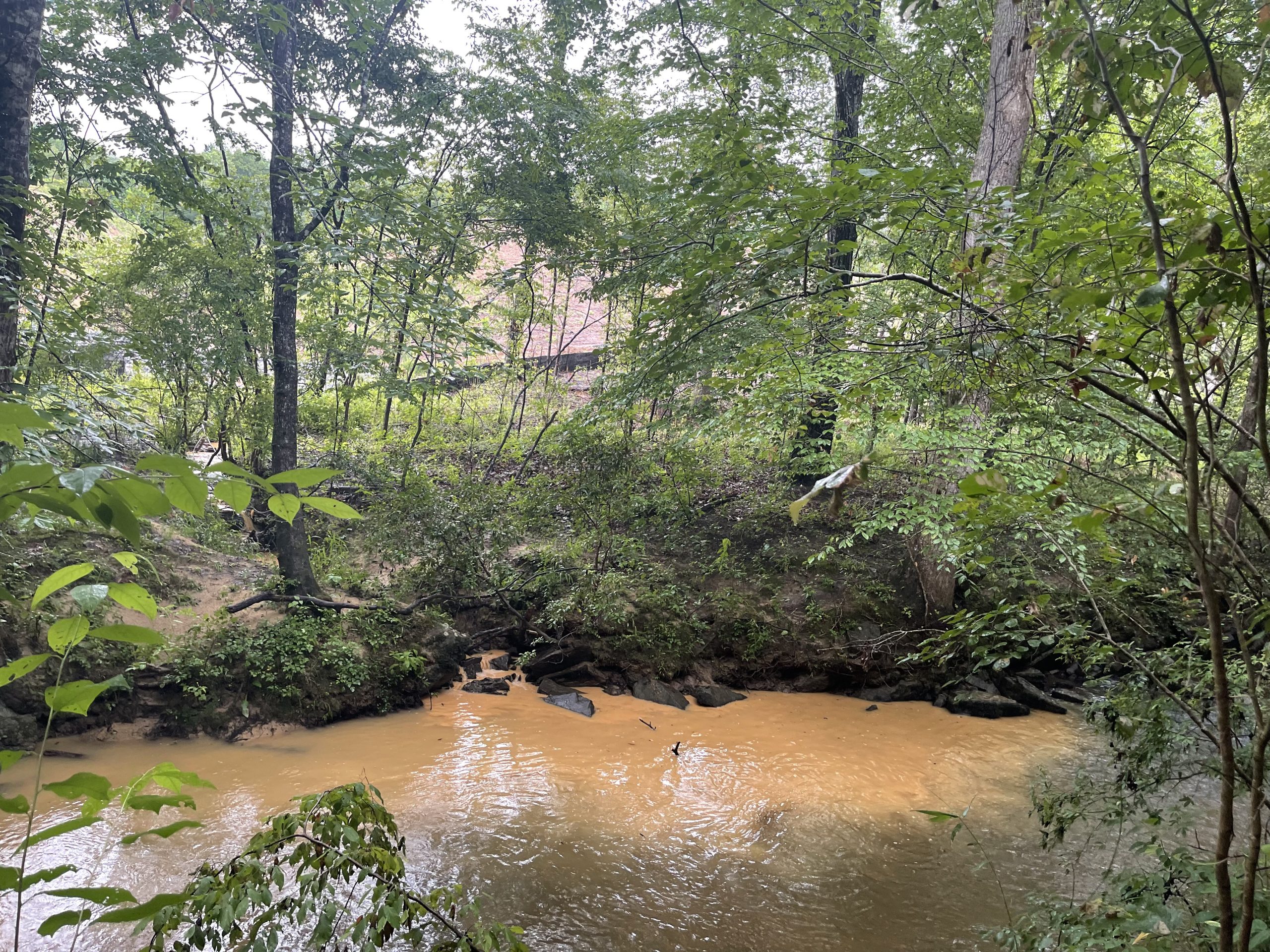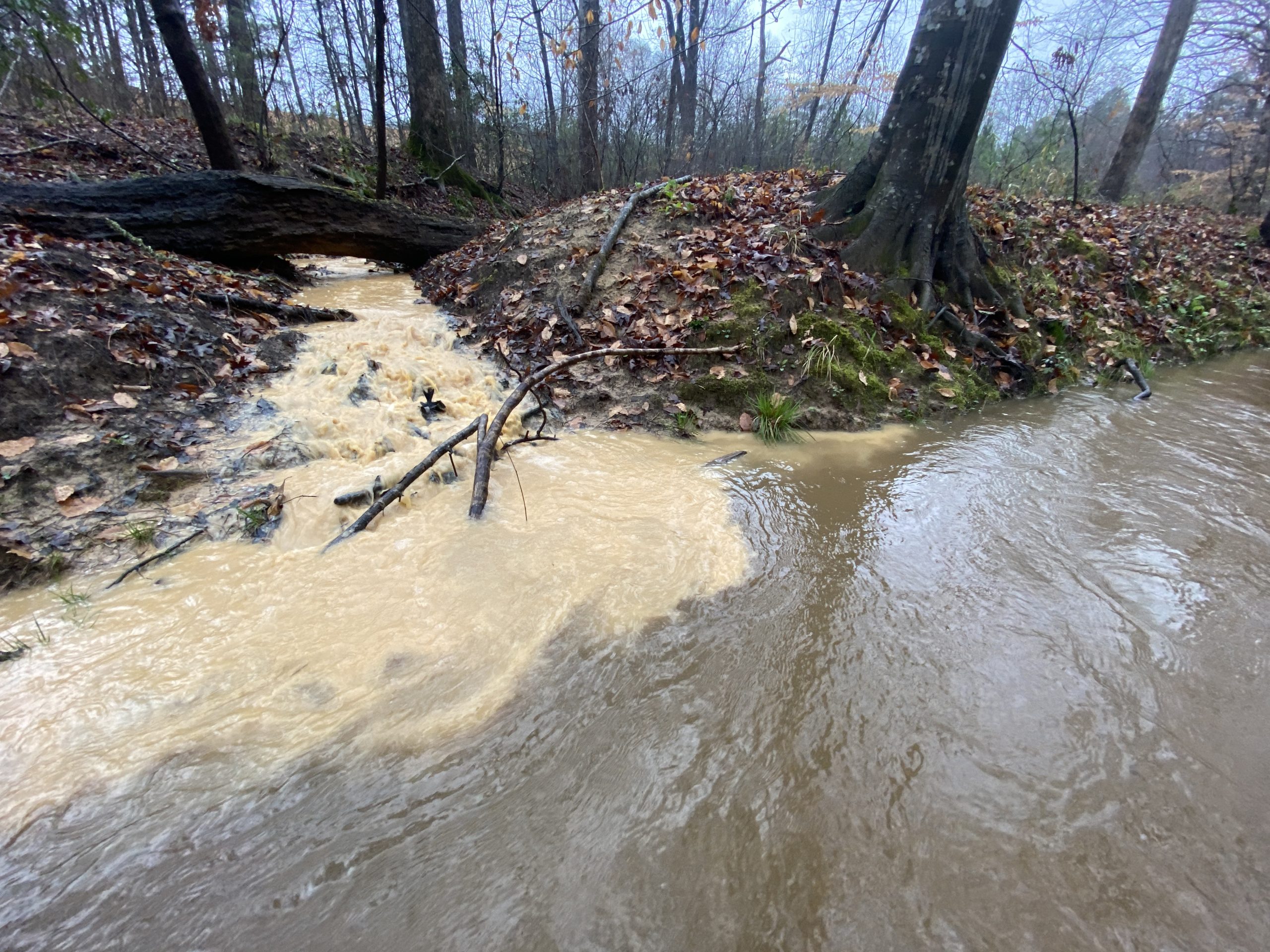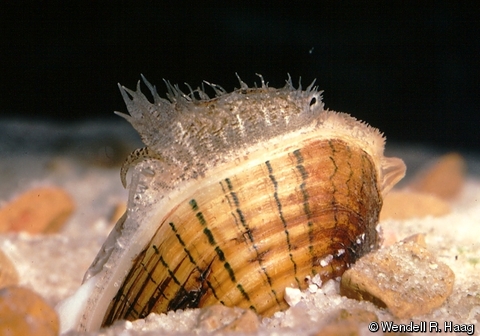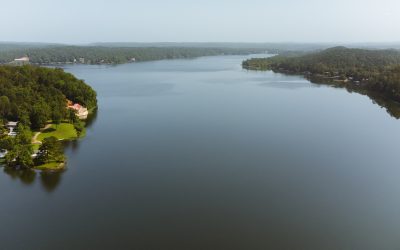
BIRMINGHAM, Ala. – The Southern Environmental Law Center filed suit on behalf of Coosa Riverkeeper today in federal court against Newcastle Homes for consistently violating the Clean Water Act in Shelby County.
In total, Coosa Riverkeeper has documented over 150 instances where Newcastle Homes violated its stormwater permit at its Melrose Landing construction site — a 78-lot subdivision adjacent to the Shelby County Dunnavant Valley Greenway. Coosa Riverkeeper has collected numerous samples in the North Fork of Yellowleaf Creek, a tributary to Lay Lake, and found that the developer discharged sediment 12-14 times over what its permit allows, which is illegal under the Clean Water Act.
“Newcastle is allowing piles of mud and silt to pollute our creek which has incredibly harmful implications for downstream water quality and habitat. Shelby County communities who want to be able to enjoy our rivers, creeks, and places like the Dunnavant Valley Greenway Trail should not have to bear the burden of Newcastle’s pattern of bad development practices especially when Newcastle has had plenty of time and notice to address these problems.”
From 2020 to 2022, Coosa Riverkeeper collected water quality samples on 25 different days and every time it documented both visible stormwater pollution, captured in pictures and videos, and excess sediment in lab samples taken from five unpermitted discharge points. In June 2021, SELC notified Newcastle of the Riverkeeper’s intent to sue — giving the developer 60 days to comply with permit requirements. However, every sample that Coosa Riverkeeper has taken since then has confirmed violations at the site, despite assurances that the company was fixing the problems.
Newcastle is the second most active homebuilder in Shelby and Jefferson counties with 220 active building permits in 2019. The company has the resources to follow practices that preserve the recreational and practical uses of surrounding waterways, yet Newcastle has repeatedly violated its construction stormwater permits for its projects across the state, including at the Dunnavant Valley Subdivision.
According to Alabama Department of Environmental Management’s eFile database, in the last five years alone, the Department found stormwater violations at 13 of the 15 Newcastle construction sites it inspected, and issued at least five warning letters, eight notices of violation, and two consent orders to the company (totaling $39,200 in penalties).
“Alabama’s rivers and streams are not a free dumping ground for developers who feel that they are above the law,” said SELC Senior Attorney Sarah Stokes. “It is past time for Newcastle Homes to address these violations once and for all.”
Background:
Under stormwater permit requirements, developers must utilize Best Management Practices to prevent uncontrolled volumes of sediment from being washed away and to reduce the turbidity in downstream waterways. Sediment is one of the leading causes of water pollution in Alabama, and developers have a responsibility to ensure that their operations do not harm water quality for downstream communities who rely on these waters for fishing, swimming, navigation, and drinking water supplies.
Coosa Riverkeeper received a citizen complaint in December 2020 from a trail runner on the Shelby County Dunnavant Greenway Trail who voiced concerns about the construction runoff at the Melrose Landing Development site. The trail spans over a mile along the North Fork of Yellowleaf Creek, a tributary to Lay Lake. Coosa Riverkeeper and Shelby County filed complaints with the Alabama Department of Environmental Management (ADEM) in December 2020, resulting in only a slap on the wrist from the state agency.
Coupled with the inadequate action taken by ADEM, Newcastle’s inaction has worsened stormwater pollution in Shelby County with no signs of improvement. As a result, Coosa Riverkeeper and the Southern Environmental Law Center filed a notice of intent to sue in June 2021, and has now filed suit in the U.S. District Court for the Northern District of Alabama.




